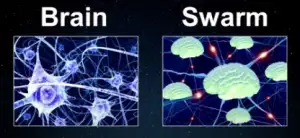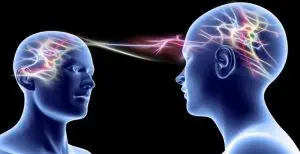The Human Hive
The Queen is Dead, Long Live the Queen!

What do human beings and honeybees have in common? More than you would think! Let’s find out more and what the implications are for how we should behave to survive as long as honeybees have. [1]
It comes as no surprise that because I am a beekeeper I am interested in this question. [ Caveat: all I write here is tentative and NOT definitive. Please think of all I write here simply as an exploration and a question rather than as “the answer”.] Really, my thoughts are far from original. In 1901, Nobel laureate and author of the “Life of the Bee” (2) Maurice Maeterlinck observed in comparing humans to the honeybee, that the purpose of all evolutionary beings is “read in the distinguishing organs, whereto the others are all subordinate”. In the human, the “duty … flame … and spirit is “evident in the production of “cerebral substance” that spreads over the universe as an “incomprehensible flame”. After 10 years of working and observing them, together with my years of experience teaching teenagers, I have come to the conclusion that human beings, especially when what I will call “unconscious/untrained” behave eerily like honeybees. How specifically? Often human behaviour is more ‘group think’ than individual choice making. Often I see people swept up in great emotional causes that sweep through our society – the riots/protests in reaction to George Floyd’s death being a case in point. Now, this is not a bad thing. We just need to admit that we such social beings that looking at us primarily as individuals is not helpful because most of us (more later on what makes some of us not like this) respond to social cues and approval as we create responses to stimuli.
Many Neurons Connected = Brain, Many Individuals connected = Swarm

Here is an evolutionary biological perspective [3]. Neurons Connect to make a Brain that can think, just as separate “beings” act in unison as they Swarm which then “thinks” [ie. Responds to stimuli and makes choices] Swarms are beginning of social behaviour and act that way because in a swarm animals [fish, birds,bees] are smarter together than alone. People are the same – except of course when groupthink makes us obey a leader [the Queen bee] who has had power go to his/her head and lost connection with reality and lost the ability to realize that their power has limits. (eg. Napoleon) Today I want to only focus on this connection. In a brain the neurons are connected by axons. In a swarm individual animals are connected by sensing the movement of others around them. Once animals evolve to social behaviour more complex communication is required: wolves howl and growl, humans talk and use facial expressions. My main point is this: that connected units – be they a neuron in a brain, a bird in a flock or a human in a city are better understood from the perspective of the unit and the unit behaviour. The individual bits, are only important in that they are parts of the whole. It is the whole that is “the thing”. Carrying this thought to its logical conclusion we can see that our current over-emphasis on individual choice and individual behaviour is perhaps not the most helpful way to help deal with the many problems we have and may actually itself be part of the problem.
What about those individuals we rise above the mob? Galileo? Da Vinci? Francis of Assisi? Darwin? Florence Nightingale? How about this as a thought: because our brain is, relative to most other animals, huge and complex, it has the ability, after much effort, training, discipline and in a supportive environment, to see it’s part in the whole and thus to modify the thoughts/emotions/impulses of “the swarm’ and go its own way. Now, sometimes this is good, and sometimes this is bad. However, it is always difficult. There is the great danger in this separateness becoming narcissism {we see that every day on the news} however on the flip side it is also possible for, what I will call a true individuals, to primarily contributes to the whole. In other words, da Vinci’s art improved the life of many other people, so did the work of Florence Nightingale. They stood apart from the group in their thoughts and deeds and yet brought gifts back to the group that were, luckily, integrated back into the whole.
Queen Bee

Finally, who the Queen bee in the Human Hive? You see, in a bee hive the Queen IS the hive. Every individual in the hive is born from her. The smell of her pheromones is what gives the worker bees a sense of purpose. It is she who provides their identify as being “family”: it the glue that binds each bee to the hive. What is our glue? What is the pheromone that binds and unifies us? I propose it is an idea, a set of values, a shared culture view of what is “right” and “wrong”, of what matters and what does not matter, of expectations and roles and manners and…. Well, culture! Without this glue of a shared idea/culture we have not hive, we have chaos. We have narcissism. We have lack of trust. We have “us’ and “them”. We have fear. In other words, we have the world we live in now. Perhaps we need to find a new glue to bind us. Perhaps we need to consciously use our intelligence for survival of the human hive. Why? Because a bee that is alone for more than a few hours foraging is a dead bee. Similarly, a human that is separate, is lonely for too long, is a dead human; if not physically right away, certainly psychologically. So, let’s work together to create a healthy human hive where each individual come express their unique talents in a way to contributes to the health of all – our hive.
References
- Video by evolutionary biologist https://www.bbc.co.uk/programmes/b087qjd4
- The Life of a Bee (1904) https://www.gutenberg.org/files/4511/4511-h/4511-h.htm
- Video, The Rise Of The Human Hive Mind https://www.youtube.com/watch?v=NBr2x25gt-8

Leave a Reply